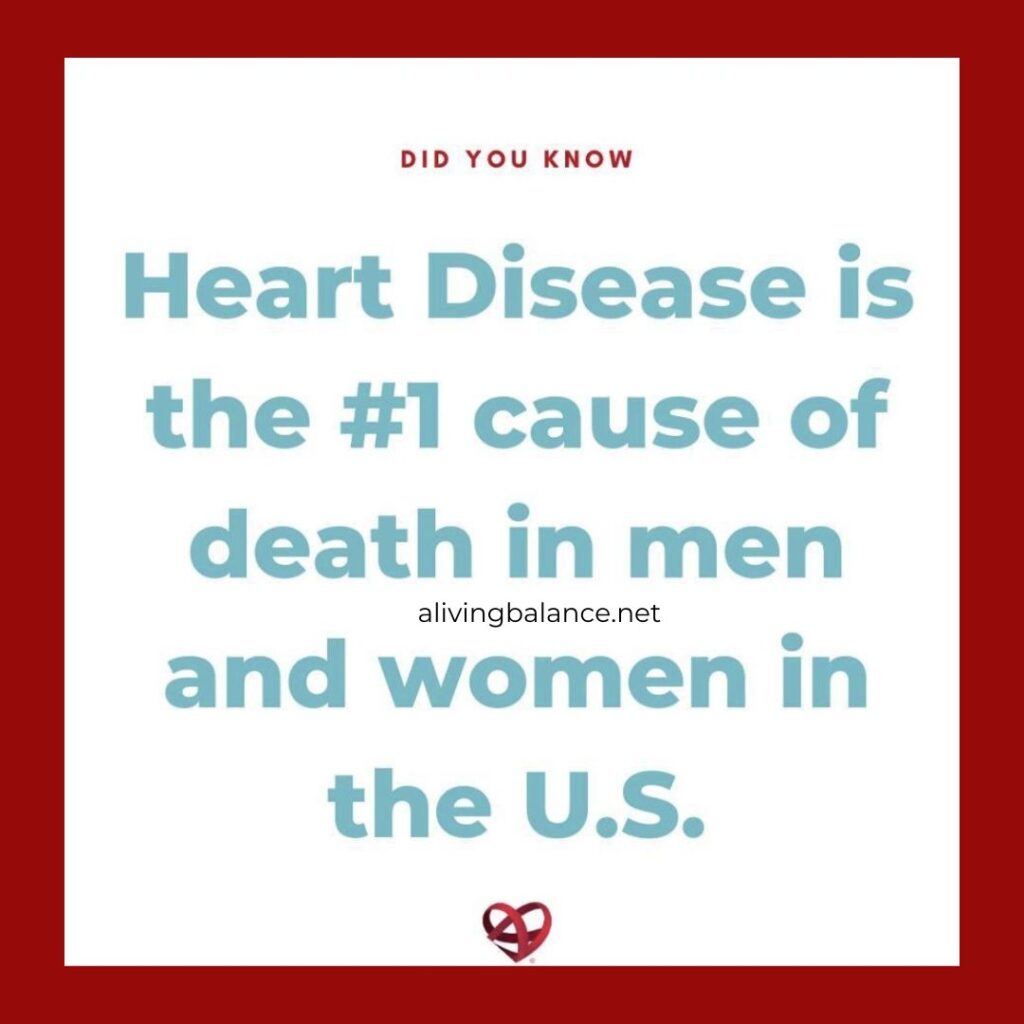
February is Heart Health Month!
And not to be a Debbie Downer… but heart disease is how many of us will exit this earth.
It’s still the #1 killer in the USA, so obviously we are not doing a very good job of preventing or treating this disease and more importantly, we are not screening for this killer sufficiently. Most people don’t even know they have Cardiovascular Disease (CVD) until they’ve a major event resulting in either death or life-long limitations.
So it’s really important to talk about better screening and the labs that should be included in order to get a really good bird’s eye view of what’s going on inside our cardiovascular system and WHY they should be included.
(BTW, starting to look at these markers as early as your 30’s is not a bad idea, preventing a lot of the damage before it happens. And don’t think anyone is immune here, very fit people can have arterial occlusions and you’d never suspect it!)
I would say that most people know their total Cholesterol, LDL aka ‘Bad Cholesterol”, HDL ‘Good Cholesterol’ and Triglycerides (although most folks don’t understand this last marker as well as the others). You’ll find all of these on the STANDARD lipid panel your doctor orders annually.
Unfortunately, this panel is very outdated and again MUST be missing a lot because approximately 1.5 million heart attacks and strokes occur every year in the United States. More than 800,000 people in the United States die from cardiovascular disease each year—that’s 1 in every 3 deaths, and about 160,000 of them occur in people under age 65!
So let’s do a makeover! Below are the additional markers we need to ask from our doctors to ensure we’re not ticking time bombs.
-
Lipoprotein (a) or Lp (a): this is a genetic marker and not something you can change per se BUT you can change how it’s expressed through nutrition and lifestyle and a few other strategies. If you carry this gene, please know that there’s no need to be anxious. It’s just good information. I recommend doing it at least once, so you’ll know if you’re more susceptible to CVD.
-
Apo (B): this is a marker that correlates with your LDL and VLDL particles but is MUCH more SENSITIVE and a MUCH better predictor of CVD risk than LDL.
-
Fasting Insulin: An early predictor of diabetes which drives CVD. High levels are inflammatory
-
h-CRP: An Inflammation marker
-
Homocysteine: Also an inflammatory marker and indirect way to measure B-12 and folate status which are part of the very important methylation process.
Maybe you noticed that three of these markers have to do with inflammation. That’s because inflammation is the underlying driver of heart disease. Diabetes and HBP are also caused by inflammation and are drivers of CVD.
Now, none of these markers are super expensive or out of the ordinary and many doctors will order them if you ask. But if they won’t or if your insurance won’t cover them, you can order them on your own. You’re still in the driver’s seat! Just use the link HERE to schedule an intro call with me for guidance.
So let’s say your Apo (B) is a bit elevated, your insulin is about a 10 (ideal is between 2.5 and 7), you’re holding a few extra lbs around the waistline, and your h-CRP is a little elevated-about 2.5.
We’ve got some work to do! In order to stop and protect you from suffering from a cardiovascular event/heart attack on down the road, we need to lower all of these numbers.
Let’s start with h-CRP which again is a marker of inflammation. It doesn’t tell us where the inflammation is coming from, so we need to put our detective hats on and look a bit deeper. I always look at the gut and mouth for any underlying infections and inflammation when I see this elevated.
The next three items (Apo (B), insulin and the few extra lbs) will all respond well to the things I’ve listed below.
-
Dietary changes-more plants and fiber, protein and good fats and cut out the grains, sugars and processed foods and alcohol.
-
Lower stress-stress increases glucose and therefore insulin levels and helps to put on the weight around the middle.
-
Move your body more– this can lower stress, utilize glucose better, increase muscle mass, and reduce girth.
-
Hormones– are super heart protective: estrogen for women and testosterone for men
-
Supplements-to lower inflammation, omega 3’s, turmeric, and of course, CoQ 10
We can all get into varying states of denial when it comes to our health. Don’t let that happen to you! Get the guidance you need to help you navigate the path of great health and vitality. I’d like all of us to grow older with vitality and joy!
P.S. Last thing: Consider a Calcium scan test. It is a non-invasive CT scan of your major arteries looking for blocked vessels. I always recommend a person do this before agreeing to be put on a statin, which is standard operating procedure and comes with many side effects and risks. I also recommend it if a person is symptomatic (shortness of breath and experiencing chest pain) even if their blood markers look fine. It’s about a $75-$100 test. Don’t be afraid to ask for it!
Hugs to you!
Cindy D